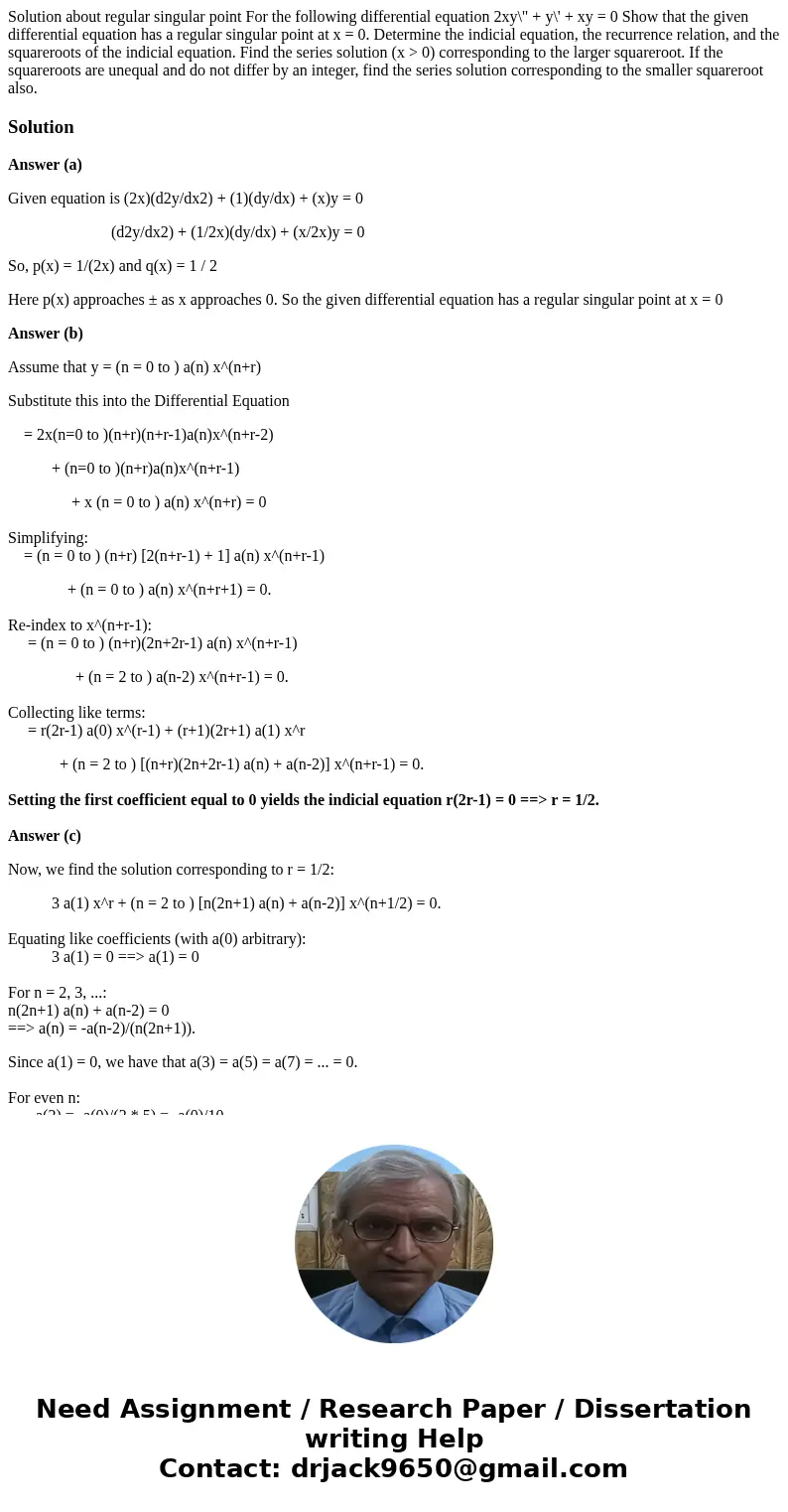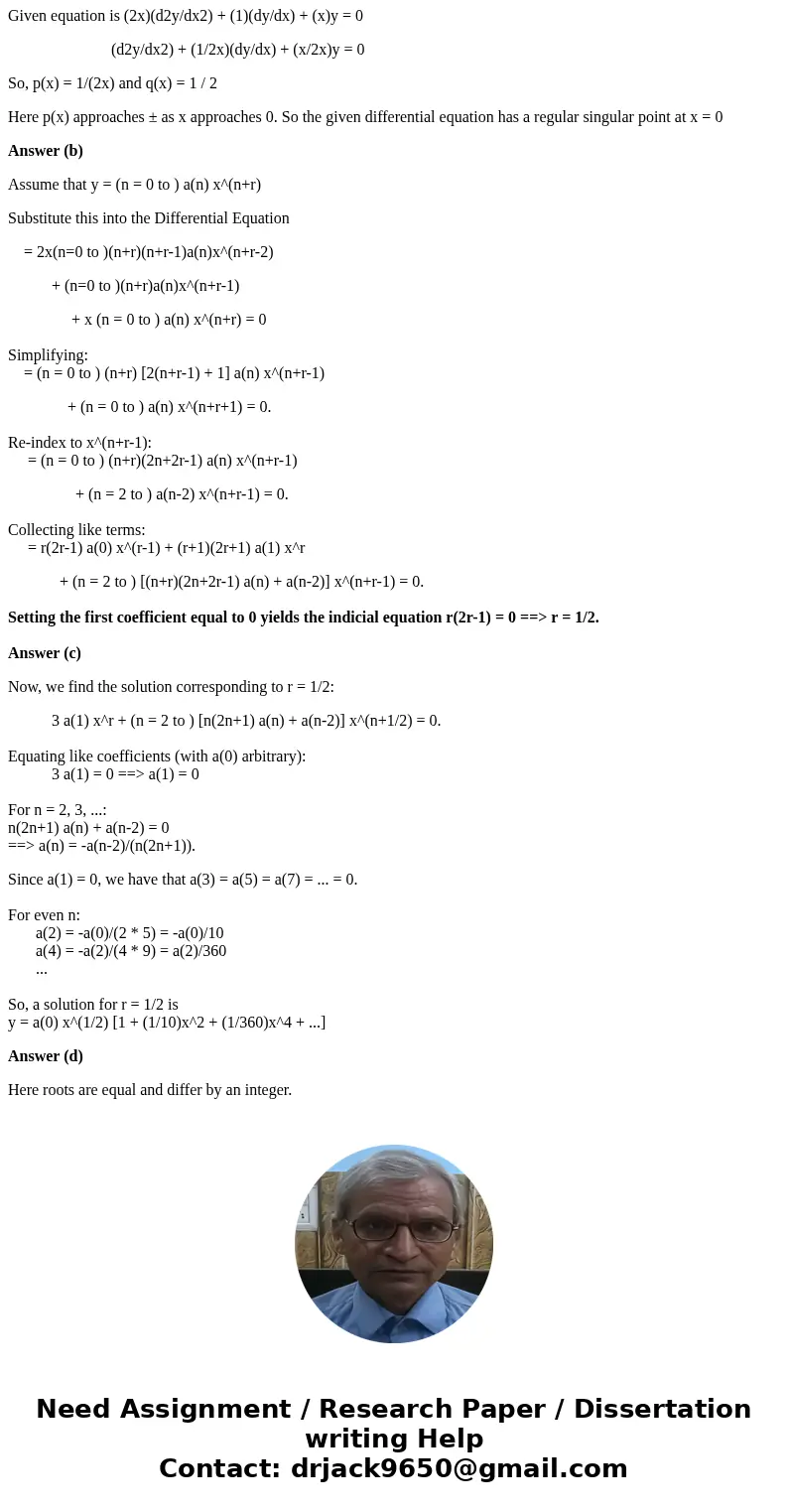Solution about regular singular point For the following diff
Solution
Answer (a)
Given equation is (2x)(d2y/dx2) + (1)(dy/dx) + (x)y = 0
(d2y/dx2) + (1/2x)(dy/dx) + (x/2x)y = 0
So, p(x) = 1/(2x) and q(x) = 1 / 2
Here p(x) approaches ± as x approaches 0. So the given differential equation has a regular singular point at x = 0
Answer (b)
Assume that y = (n = 0 to ) a(n) x^(n+r)
Substitute this into the Differential Equation
= 2x(n=0 to )(n+r)(n+r-1)a(n)x^(n+r-2)
+ (n=0 to )(n+r)a(n)x^(n+r-1)
+ x (n = 0 to ) a(n) x^(n+r) = 0
Simplifying:
= (n = 0 to ) (n+r) [2(n+r-1) + 1] a(n) x^(n+r-1)
+ (n = 0 to ) a(n) x^(n+r+1) = 0.
Re-index to x^(n+r-1):
= (n = 0 to ) (n+r)(2n+2r-1) a(n) x^(n+r-1)
+ (n = 2 to ) a(n-2) x^(n+r-1) = 0.
Collecting like terms:
= r(2r-1) a(0) x^(r-1) + (r+1)(2r+1) a(1) x^r
+ (n = 2 to ) [(n+r)(2n+2r-1) a(n) + a(n-2)] x^(n+r-1) = 0.
Setting the first coefficient equal to 0 yields the indicial equation r(2r-1) = 0 ==> r = 1/2.
Answer (c)
Now, we find the solution corresponding to r = 1/2:
3 a(1) x^r + (n = 2 to ) [n(2n+1) a(n) + a(n-2)] x^(n+1/2) = 0.
Equating like coefficients (with a(0) arbitrary):
3 a(1) = 0 ==> a(1) = 0
For n = 2, 3, ...:
n(2n+1) a(n) + a(n-2) = 0
==> a(n) = -a(n-2)/(n(2n+1)).
Since a(1) = 0, we have that a(3) = a(5) = a(7) = ... = 0.
For even n:
a(2) = -a(0)/(2 * 5) = -a(0)/10
a(4) = -a(2)/(4 * 9) = a(2)/360
...
So, a solution for r = 1/2 is
y = a(0) x^(1/2) [1 + (1/10)x^2 + (1/360)x^4 + ...]
Answer (d)
Here roots are equal and differ by an integer.


 Homework Sourse
Homework Sourse